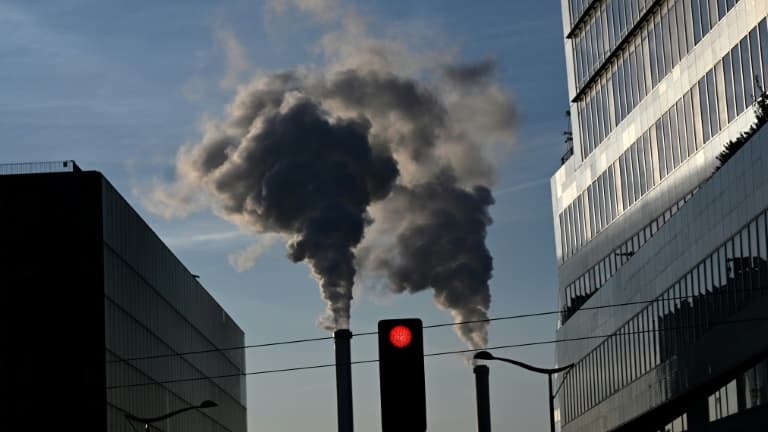
According to one report, from January to June, fossil fuels generated 410 TWh in the European Union, the lowest share of the electricity mix ever recorded, at 33%.
The share of electricity produced from fossil fuels fell to 33% in the European Union in the first half of the year, the lowest level ever, according to a report published Wednesday by the climate and energy think tank Ember.
Between January and June, “fossil fuels generated 410 TWh in the European Union, the lowest share of the electricity mix ever recorded, at 33%,” Ember specifies in its report, against nearly 36%. For all renewables, including about 27% of renewables. Solar and wind energy, according to data provided by Ember to AFP.
“The decline in fossil fuels is a sign of the times,” said Matt Ewen, an analyst at Ember. “Coal and gas are expensive and very dangerous and the EU is phasing them out.”
The main reason: Demand for electricity has fallen dramatically on the continent, from homes and factories. Coal and gas plants were the first to slow down, reducing their share in total production.
drop more than 30%
The report indicates that the production of fossil electricity in coal or gas power plants decreased by 17% between January and June compared to the first half of 2022. Indeed, five member states of the European Union witnessed a decrease of more than 30% (Portugal, Austria, Bulgaria, Estonia, and Finland). Electricity production from coal fell by 23%, which for the first time accounted for less than 10% of the European electricity mix in May. And from gas decreased by 13%.
The report’s authors warn of the need to “significantly” increase the deployment of renewable energies, especially solar and wind power, “to support a resilient economy across Europe” and to compensate in a sustainable way for the decline in electricity production from fossil fuels. fuel.
In terms of volume, renewable energy production is not, at present, sufficient to offset the decline in electricity produced from fossil fuels, which amounted to 86 TWh, while renewables only increased at the same time at just under 40 TWh. .
Solar energy increased by 13% (+13 TWh) during the first half of the year compared to the first six months of 2022, and wind energy increased by 4.8% (+10 TWh). Hydropower increased by 11% (+15 TWh). The report also notes that nuclear energy production should recover, having been at half-mast in early 2023 due to a strong unavailability of the French nuclear fleet, the first in Europe.






